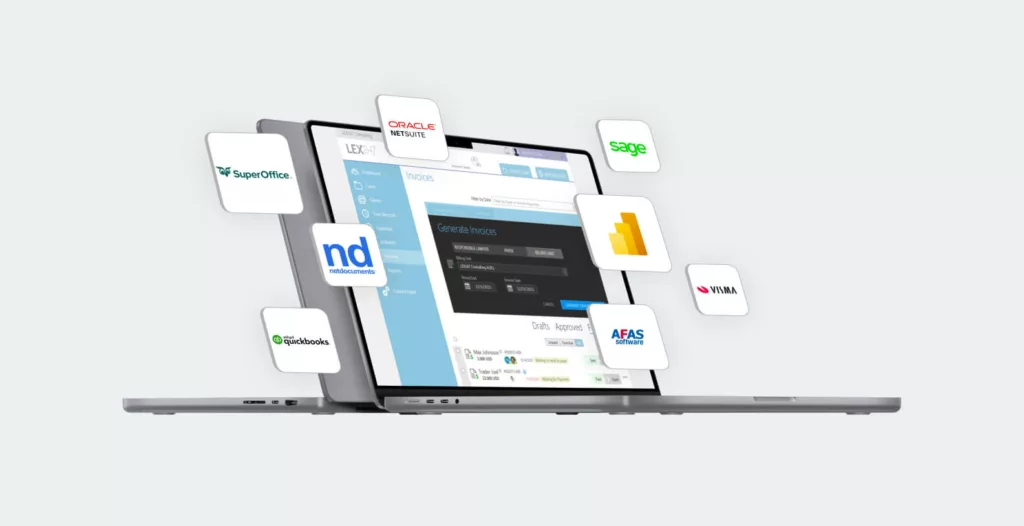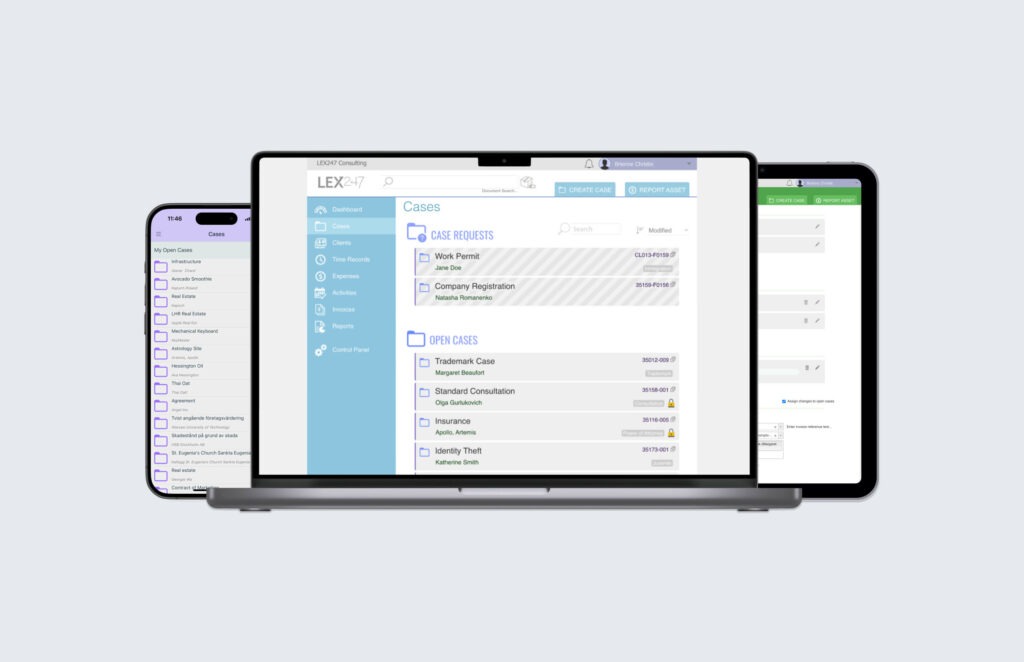In recent years, the legal landscape has witnessed a rapid transformation driven by advancements in technology, presenting law firms with an array of sophisticated tools beyond mere caseload management.
This evolution has prompted law firms to reevaluate their traditional approaches and embrace innovative solutions to improve efficiency, productivity, and client service. From Legal Practice Management software to Generative AI and sophisticated Business Intelligence tools, the integration of technology has become essential to succeed in the legal sphere.
Law firms have long been rooted in tradition, relying on experience and intuition, with a reluctance to change. However, the advent of new technologies has sparked a significant shift in the industry. Today, law firms are under increasing pressure to meet changing client expectations, provide transparent pricing, and to manage margins effectively. Despite this, there are still firms depending on basic metrics from time stock reports and accounting systems, which are insufficient for the demands of modern legal practice.
The key role of the Legal Practice Management Software
As the legal industry grapples with data breaches and transitions away from outdated infrastructure, the adoption of True- Cloud software solutions are gaining momentum. Beyond enhancing data security and accessibility, these platforms offer unparalleled opportunities for data analysis, particularly through Business Intelligence techniques.
Legal Practice Management Software has emerged as a cornerstone of modern law firms, offering a centralized platform for managing cases, clients, documents, administrative tasks, with seamless integrations to Document Management Systems and financial applications. These software solutions enable law firms to automate routine processes, streamline workflow management, and improve collaboration among legal teams.
Apart from its streamlined legal workflow management, a True-Cloud based Legal Practice Management software can offer comprehensive Business Intelligence capabilities. With antiquated on-premises legal software, legal data is scattered across different systems and local repositories, posing a significant obstacle to effective Business Intelligence implementation. However, technological advancements, such as True-Cloud, have mitigated this challenge, making data aggregation and analysis more accessible than ever before.
The Imperative for Information and Analytics
Within the legal community, there’s a growing acknowledgment of the advantages of data-driven decision-making. Research underscores the correlation between data utilization and improved client service, retention, and acquisition. However, many legal professionals lack the requisite skills to harness data effectively. As technology progresses, accessibility to analytics tools is expanding, making data-driven practice management more attainable.
Empowering lawyers with insights into their performance fosters a culture of accountability and drives productivity improvements, improving their ability to identify aggregated trends and patterns in their practice areas, as well as opportunities for growth and expansion, client inactivity and much more.
LEX247, Your Gateway to Data and Insights
LEX247’s True-Cloud Legal Practice Management Software stands at the forefront of this technological revolution. With a robust BI-database seamlessly integrated with leading analytics tools, such as Power BI, QlikView, and Tableau, firms can easily generate reports, dashboards, and perform in-depth analysis. This facilitates the visualization of critical metrics, revenue streams, and overall profitability, equipping firms with actionable insights.
Business Intelligence Best Practices
To provide practical insights, we showcase some analysis that can be conducted by using LEX247 Business Intelligence data. Highlighting the remarkable progress certain firms have made, resulting in notable enhancements in growth, productivity, and client satisfaction.
-
- Client Acquisition and Retention Strategies
Monitor metrics such as client retention rates, acquisitions, satisfaction scores, and assess lifetime value to gauge client engagement and satisfaction. Use data analytics to structure and analyse client data, case histories, identify areas for improvement and new services to develop to better cater to clients’ needs. Reduce the time to perform Conflict-of-Interest checks to generate better case request conversion.
Evaluate marketing campaigns, client acquisition channels, and conversion rates. Track client referrals and evaluate the efficacy of business development initiatives.
-
- Improve Profitability
Use BI to assess everything from the overall health of the practice to the performance of individual lawyers. By setting and monitoring Key Performance Indicators (KPI’s) for legal staff the law firm management can foster a culture of continuous improvement and high performance.
Provide new insights into pricing models, automate the information gathering process to improve tender and case request conversions. Reduce time creating pitches and responding to proposal requests, spend more effort on the tenders with greater chance of success, and less effort on the others.
Generate a better cash-flow by assessing the time spent from last touches on a case to the time of executing the billing.
-
- Maximizing Resource Utilization and Efficiency
Assess revenue trends and avenues for cost optimization. Monitor case statuses, durations, participation levels, time to billing, and outcomes to identify workflow bottlenecks and optimize resource allocation. Track performance metrics such as case resolution time, success rates, billable hours, and utilization rates. Identify underutilized resources and opportunities for workload balancing. Adjust staffing levels dynamically to meet demand fluctuations.
Measure time spent on cases, evaluate time saving the new legal technology applications are generating, such Generative AI-tools and proof-reading applications.
-
- Harnessing Predictive Analytics for Informed Decision-Making
Utilize historical data to forecast future outcomes, including case durations, revenue projections, cost estimates for cases (based on all historical cases with similar aspects). Identify emerging patterns and trends to support the strategic decision-making processes. Enable a proactive management and adaptation to ever-evolving market dynamics.
Conclusion
The integration of technology and Business Intelligence has transformed the practice of law, enabling firms to operate more efficiently, make better-informed decisions, and deliver superior client service. From legal practice management software to generative AI and sophisticated BI tools, the possibilities for innovation are limitless. As the legal industry continues to evolve, law firms must embrace technology as a strategic imperative to remain competitive. By embracing the possibilities with technology and data, law firms can unlock new opportunities for growth, innovation, and success.
If you found this article intriguing and wish to explore how Business Intelligence can provide your law firm with greater clarity and foster growth, please do not hesitate to reach out. We would be delighted to discuss how LEX247 can support your law firm’s needs.







